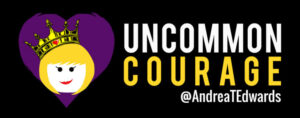Let me start by asking – how many times have you wondered but just not bothered to find out why Easter is symbolised by a big fluffy bunny and eggs? I have loads of times but this Easter, I decided it was time to know the “truth.” Essentially I’ve always known it’s a Pagan ritual of some description, celebrating new life, Spring, etc.. but I can’t admit to truly “knowing” what it’s all about, so here goes…
Growing up in a Catholic family, Easter was good from a chocolate perspective, bad from a Church perspective. It was always the longest mass of the year without the fun (you know, it was about the crucifixion after all,) and there were other aspects to it, like fasting! We did get to have fish and chips on a Friday though and Shrove Tuesday was always a goodie. For some, it’s the only time of year they get to gorge on pancakes – take Steve’s family as an example. Throughout my childhood, there was a lot of ritual around Easter and extra masses (ugh,) and while at the time it was exciting, it’s certainly not something I’ll subject my children to.
It’s important to note that I am still undecided on what rituals to introduce into my son’s lives – because I do believe that some rituals can be good. Currently I’m considering giving them exposure to every religion (so friends of other faiths, invite us along, we will come) and then they can decide what they want to do when they’re old enough. We shall see.
But I digress. According to www.who2.com “the Easter Bunny is a jaunty symbol of the annual Christian holiday of Easter. (Easter marks the day that Jesus of Nazareth is believed to have risen from the grave after his crucifixion.) According to tradition, the Easter Bunny makes his visit every year, scattering brightly-colored eggs as he goes. The origins of the Easter Bunny aren’t clear; the first recorded references to him (as “Oschter Haws”) are generally agreed to have come from Germany in the 1500s. In ancient times the rabbit was a symbol of fertility, equated with springtime and renewal of life, and the hare was also associated with the moon, whose cycles determine the precise date of Easter each year. Over time these traditions presumably merged with the annual celebration of Easter itself, and now the Easter Bunny is associated with Easter in much the same way that Santa Claus is the secular symbol of Christmas.”
So we can thank the Germans for the tradition of Easter eggs, especially the ones who moved to North America, because that ensured commercialisation, globalisation and sugar rushes for Christian children around the world yesterday.
Some key facts I picked up thanks to Wikipedia include:
- The first mention of the Easter Bunny was Georg Franck von Frankenau’s De ovis paschalibus referring to an Alsace tradition of an Easter Hare bringing Easter Eggs
- The first edible Easter Eggs were made in Germany during the early 19th century and were made of pastry and sugar – chocolate was a good evolution
- Eggs, like rabbits and hares, are fertility symbols of antiquity. Since birds lay eggs and rabbits and hares give birth to large litters in the early spring, these became symbols of the rising fertility of the earth at the Vernal Equinox
- Rabbits and hares are both prolific breeders as we all know – we’ve all heard the saying…. BUT check this out – females can conceive a second litter of offspring while still pregnant with the first – YIKES!! This phenomenon is known as supertfetation
- The precise origin of the ancient custom of colouring eggs is not known, although evidently the blooming of many flowers in spring coincides with the use of the fertility symbol of eggs—and eggs boiled with some flowers change their colour, bringing the spring into the homes
- Eggs were forbidden to Catholics during the fast of Lent, which was the reason for the abundance of eggs at Easter time
Yours, without the bollocks
Andrea



One Response
Interesting blog, once again. I used to dread the masses around Easter as well, especially Palm Sunday, which was about 3 hours long!!! As a kid, time seems to drag by so much more slowly than for adults, and I think we forget that. Anyway. If I ever had kids, I wouldn't subject them to the rituals I was as a kid!